“Technology-enabled climb up the demand-driven energy ladder: Interoperability, Growth, All-access”
Date: October 30, Friday, 8:00-9:00 a.m.
Authors/Organisers:
Dr. Jelena Popovic, University of Twente
Dr. Nishant Narayan, TUDelft Global Initiative;
Panelists:
Makena Ireri (CLASP, Collaborative Labeling and Appliance Standards Program)
Drew Corbyn (GOGLA, Global Off-Grid Lighting Association)
Dr. Deepak Divan (Georgia Tech)
Prof. Izael P. Da Silva (Strathmore University)
Nithya Menon (Okra)
Dr. Henry Louie (Seattle University)
Abstract:
Ensuring universal, affordable and sustainable energy access is one of the biggest societal challenges of our time. As of 2020, close to a billion people worldwide live without electricity, and another two billion have unreliable access. The centralized electricity grid is, due to cost, mismatch to the user needs and challenges around financial feasibility, not always the optimal choice, especially for remote, rural contexts. Decentralized, bottom-up approaches, such as solar home systems and microgrids, have emerged as a response to shortcomings of the centralized grid approach, but affordability, scalability, path to growth and long-term sustainability remain a challenge.
Solutions that enable bottom-up growth of the energy system and enabling interoperability of existing approaches could address some of these challenges. Alternative innovation approaches enabled by open source, localization, collaborative business models could also be part of the solution. There is already pioneering work and initiatives in this direction by CLASP, GOGLA, academia, private sector, etc.
CLASP will fund R&D projects related to interoperability through the Low Energy Inclusive Appliances (LEIA) programme. IEEE PELS (Power Electronics Society) engaged with Energy Access through running a global challenge Empower a Billion Lives (EBL), and including Energy Access as a new topic in its long-range planning, as power electronics is a key technology in these innovative approaches. Bottom-up solutions have been the subject of both research and several off-grid companies have ventured in this direction, some of them presenting their solutions within the Empower a Billion Lives Challenge. SoULS, an IIT Bombay initiative (and the global EBL winner) has implemented large scale local assembly of an open source solar lantern design in rural India etc. Despite the commendable efforts of many initiatives in this direction, there is still room for cross-organizational collaborations and leveraging effective synergies.
This panel aims to create a dialogue between various stakeholders on technology-enabled path forward towards universal energy access. The panel will throw a spotlight on:
- Diverse perspectives on the issues of interoperability/all-access/etc.
- Technological challenges and opportunities to make it happen
- Role of different stakeholders (including different IEEE societies)
The discussions of this panel are expected to form the basis to move forward with cross-cutting dialogue and initiatives (including providing input to the second round of IEEE PELS Empower a Billion Lives Challenge).
Panelists
Makena Ireri
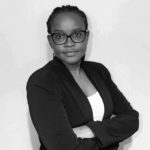 Makena is a Manager at CLASP. She manages research for the organization’s Clean Energy Access programs, primarily the Efficiency’s for Access coalition and its flagship programme Low Energy Inclusive Appliances program (LEIA). Makena develops and implements research projects that support the energy access sector to accelerate the social and environmental benefits of access to energy services in Africa and Asia. Through her work, she helps fill technical, market, consumer, and impact data gaps for a variety of off-grid appliance technologies e.g. fridges, solar water pumps, agricultural processors, and cold chain technologies. Her research also covers diverse themes like productive use, interoperability of-off grid systems, affordability, and resilience. Makena is an Energy Generalist with over 8 years’ experience in a range of energy contexts. She spent four years as a civil engineer with the UK’s largest engineering consultancy (Atkins) working in the civil nuclear energy sectors. She worked both in new asset development and in supporting the UK’s largest energy utility(EDF). Since moving into Clean Energy Access, she has gained experience in SME advisory, Innovations in funding for and accelerating energy access, research, and analyses to support sectoral action and development project management.
Makena is a Manager at CLASP. She manages research for the organization’s Clean Energy Access programs, primarily the Efficiency’s for Access coalition and its flagship programme Low Energy Inclusive Appliances program (LEIA). Makena develops and implements research projects that support the energy access sector to accelerate the social and environmental benefits of access to energy services in Africa and Asia. Through her work, she helps fill technical, market, consumer, and impact data gaps for a variety of off-grid appliance technologies e.g. fridges, solar water pumps, agricultural processors, and cold chain technologies. Her research also covers diverse themes like productive use, interoperability of-off grid systems, affordability, and resilience. Makena is an Energy Generalist with over 8 years’ experience in a range of energy contexts. She spent four years as a civil engineer with the UK’s largest engineering consultancy (Atkins) working in the civil nuclear energy sectors. She worked both in new asset development and in supporting the UK’s largest energy utility(EDF). Since moving into Clean Energy Access, she has gained experience in SME advisory, Innovations in funding for and accelerating energy access, research, and analyses to support sectoral action and development project management.
Drew Corbyn
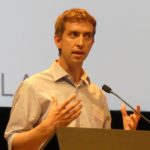 Drew is the Head of Performance & Investment at GOGLA. He has more than 14 years’ experience working with companies, governments, donors and NGOs to catalyse markets in the off-grid light and power sector.
Drew is the Head of Performance & Investment at GOGLA. He has more than 14 years’ experience working with companies, governments, donors and NGOs to catalyse markets in the off-grid light and power sector.
In his current role, Drew leads a team to promote business products, services and practices that create value for consumers. He’s most proud to have led an industry initiative to establish the GOGLA Consumer Protection Code, and loves working with off-grid solar companies to help drive cutting-edge technological innovation in villages and homes across Africa.
Drew holds a master’s degree in mechanical engineering from the University of Nottingham and has lived and worked in Asia, Africa, Latin America and Europe. His love for the mountains has brought him to live in the Netherlands.
Dr. Deepak Divan
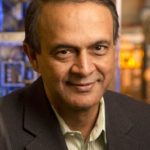 Dr. Deepak Divan is Professor, John E Pippin Chair, GRA Eminent Scholar and Director of the Center for Distributed Energy at the Georgia Institute of Technology in Atlanta, GA. His field of research is in the areas of power electronics, power systems, smart grids and distributed control of power systems. He works closely with utilities, industry and is actively involved in research, teaching, entrepreneurship and starting new ventures.
Dr. Deepak Divan is Professor, John E Pippin Chair, GRA Eminent Scholar and Director of the Center for Distributed Energy at the Georgia Institute of Technology in Atlanta, GA. His field of research is in the areas of power electronics, power systems, smart grids and distributed control of power systems. He works closely with utilities, industry and is actively involved in research, teaching, entrepreneurship and starting new ventures.
Dr. Divan also serves as Founder and Chief Scientist at Varentec, in Santa Clara, CA, and was President and CTO from 2011-14, leading the company as it developed its suite of innovative distributed real-time grid control technologies. Varentec is funded by leading green-tech Venture Capital firm Khosla Ventures and renowned investor Bill Gates.
Dr. Divan is an elected Member of the US National Academy of Engineering, member of the National Academies Board on Energy and Environmental Systems, a Fellow of the IEEE, past President of the IEEE Power Electronics Society, and is a recipient of the IEEE William E Newell Field Medal. He has 40 years of academic and industrial experience, 65 issued and pending patents, and over 400 refereed publications. He has founded or seeded several new ventures including Soft Switching Technologies, Innovolt, Varentec and Smart Wires, which together have raised >$160M in venture funding. He received his B. Tech from IIT Kanpur, and his MS and PhD degrees from the University of Calgary, Canada.
Prof. Izael Pereira Da Silva
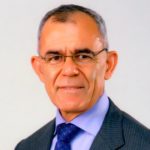 Prof. Izael Pereira Da Silva has a PhD in Power Systems Engineering from the University of Sao Paulo (Brazil). He is also a Certified Energy Manager (CEM). At present he is a Professor at Strathmore University and the Deputy Vice Chancellor – Research and Innovation. He is the Director of the Strathmore Energy Research Centre, SERC. The centre does training, research, testing and consultancy in energy related topics. His topics of interest are: Rural Electrification, Renewable Energy, Energy Efficiency, Energy Policy, Sustainable Environment and Demand Side Management.
Prof. Izael Pereira Da Silva has a PhD in Power Systems Engineering from the University of Sao Paulo (Brazil). He is also a Certified Energy Manager (CEM). At present he is a Professor at Strathmore University and the Deputy Vice Chancellor – Research and Innovation. He is the Director of the Strathmore Energy Research Centre, SERC. The centre does training, research, testing and consultancy in energy related topics. His topics of interest are: Rural Electrification, Renewable Energy, Energy Efficiency, Energy Policy, Sustainable Environment and Demand Side Management.
In March 2012 Prof Da Silva together with other partners won a project sponsored by DFID and DANIDA and managed by the World Bank to set up the first Climate Innovation Centre (CIC) in the world. It is housed in Strathmore and serves SMEs financially and technically to solve challenges posed by the adverse impact of climate change either by mitigation or adaptation. Prof Da Silva has written quite extensively in the field of energy.
In 2013 he was honoured by the Brazilian Government with the title of “Comendador da Ordem do Rio Branco” for his services towards education and poverty alleviation in Africa. In October 2014, after more than one year of efforts together with seven other colleagues he managed to get the Association of Energy Engineers – AEE to approve the Association of Energy Professionals (Eastern Africa) as a chapter of AEE for the five countries of East Africa plus Ethiopia and South-Sudan. Prof Da Silva is the first elected President and founding member of the AEP(EA).
Nithya Menon
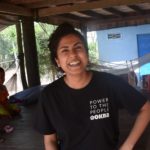 Nithya Menon is the product development lead and part of the founding team of Okra, an IoT technology company developing a smart, decentralized microgrid solution to get reliable and affordable energy to off-grid communities across Asia. She has a diverse technology background in software and electronics engineering and has dedicated her career towards sustainable development sectors in SE Asia, developing tools and services to empower rural communities.
Nithya Menon is the product development lead and part of the founding team of Okra, an IoT technology company developing a smart, decentralized microgrid solution to get reliable and affordable energy to off-grid communities across Asia. She has a diverse technology background in software and electronics engineering and has dedicated her career towards sustainable development sectors in SE Asia, developing tools and services to empower rural communities.
Dr. Henry Louie
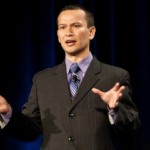 Dr. Henry Louie received his B.S.E.E. degree from Kettering University in 2002, his M.S. degree from the University of Illinois at Urbana-Champaign in 2004 and his PhD in Electrical Engineering from the University of Washington in 2008. He is a Professor in the Department of Electrical and Computer Engineering at Seattle University. In 2015 Dr. Louie was Fulbright Scholar to Copperbelt University in Kitwe, Zambia. He is the President and Co-founder of KiloWatts for Humanity, a non-profit organization providing off-grid electricity access and business opportunities in sub-Saharan Africa. Dr. Louie is an Associate Editor for Energy for Sustainable Development and is a founding member of the IEEE PES Working Group on Sustainable Energy Systems for Developing Communities. Dr. Louie is recognized as an IEEE Distinguished Lecturer for his expertise on energy poverty. He is a Senior Member of the IEEE and the Chair of the IEEE PES/IAS PowerAfrica Steering Committee. He previously served as Vice President of Membership & Image of the IEEE Power & Energy Society.
Dr. Henry Louie received his B.S.E.E. degree from Kettering University in 2002, his M.S. degree from the University of Illinois at Urbana-Champaign in 2004 and his PhD in Electrical Engineering from the University of Washington in 2008. He is a Professor in the Department of Electrical and Computer Engineering at Seattle University. In 2015 Dr. Louie was Fulbright Scholar to Copperbelt University in Kitwe, Zambia. He is the President and Co-founder of KiloWatts for Humanity, a non-profit organization providing off-grid electricity access and business opportunities in sub-Saharan Africa. Dr. Louie is an Associate Editor for Energy for Sustainable Development and is a founding member of the IEEE PES Working Group on Sustainable Energy Systems for Developing Communities. Dr. Louie is recognized as an IEEE Distinguished Lecturer for his expertise on energy poverty. He is a Senior Member of the IEEE and the Chair of the IEEE PES/IAS PowerAfrica Steering Committee. He previously served as Vice President of Membership & Image of the IEEE Power & Energy Society.




